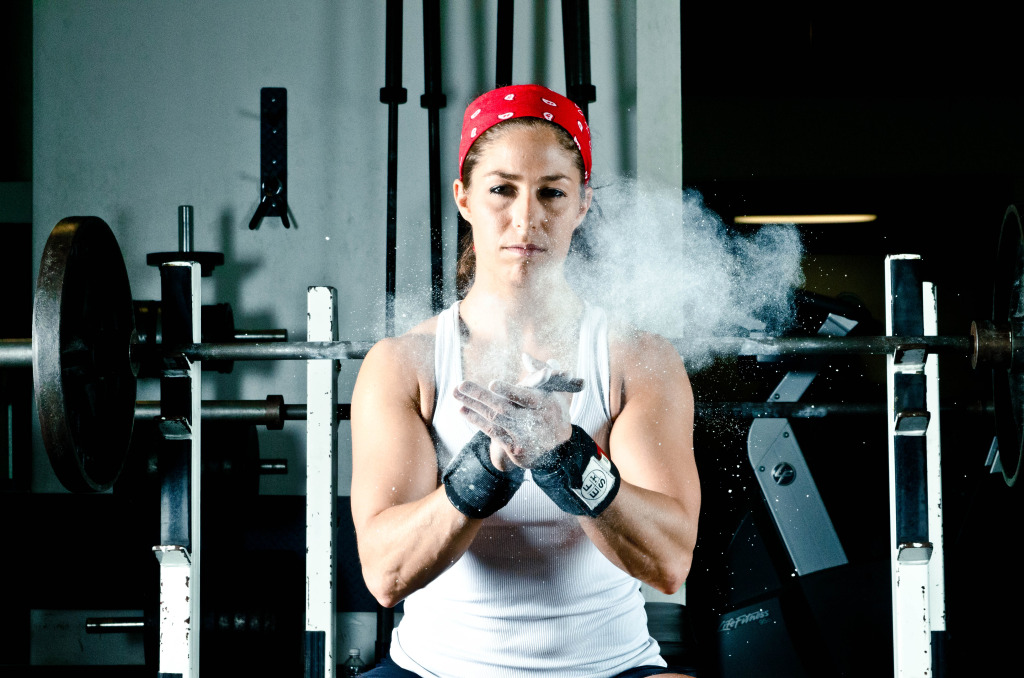
As a women whose training partner is a man, I can say cutting weight next to him is very annoying. Doing the same weight cut as my training partner seems to be quite more of a struggle for me than it is for him. Given, as a women, hormones come in to play. Women, having higher levels of estrogen, which is commonly associated with weight gain by slowing down the metabolism. Progesterone, which plays a big role in women’s menstrual cycles, influences the body to hold on to water a bit more. These are factors that contribute to the greater challenge of cutting weight for women.
I’ve done weight cuts where I just focus on a water weight drop (miserable), and weight cuts where I took the more gradual approach (i.e changing my diet, adding more cardio (ugh))… Neither are enjoyable. It’s exhausting, miserable, and pisses me off.
For someone who competes in the 132 weight class, I find it that much harder to cut down. Changing diet up can really screw up my strength, especially when 90% of the time my diet is very clean, so to clean it up more than it already is, can be quite challenging.
How can I make weight, and preserve as much lean mass, strength, and energy as possible? It’s tough for sure. I have found myself sitting in hot tubs, steam rooms, and saunas, fully clothed doing cardio to just lose .25 of a lb.. UGH!
What I have found to be the “easiest” approach, is the gradually cut. More recently, I sit at about 140 and need to get to 132. I clean my “all ready clean” diet up a bit more… usually 4 to 6 weeks out.. Bye-bye jars of peanut butter (sigh)… No cheat meals, no pancakes. Hello to lots of chicken salads, salmon, sweet potatoes, and protein shakes. Not too horrible really, as long as you are getting in carbs especially post workout, and keeping enough protein in.
As long as I can drop a few “bad” pounds, preferable 4-5 through diet, and keep the water cut to 5 lbs or less… seems to be the best… but again, HARD, as a women, not having too much weight on you to lose, 1 lb can be painful and disgusting to drop. You have to do what you have to do right…
Water loading prior to the dehydration phase is very important. This helps get the water out easier, along with water pills, dandelion root, and magnesium citrate supplement to help extract the water. Steam rooms, and low intensity cardio for the sweat, but be careful to not expend too much energy at a higher intensity as you will need this to recover.
When cutting, do ask yourself, do I need to do this, is it necessary? If you are competing to compete, to get more experience, then I suggest not cutting weight, not only does it take a physically toll on the body, it is stressful and mentally exhausting as well. If you are looking to break records, or hit a certain lift at a different weight class, then sure, do what you got to do, but do prepare yourself for a challenge, a very tough challenge.
When refueling and rehydrating try to avoid going all out and scarfing down as much food as you can immediately as this is not the best way to go about it. First and foremost, your body needs to rehydrate so get some water, sodium, and electrolytes back in. The first thing I have is Pedialyte. This allows me to have a great start to the rehydration process. This process can easily be done wrong. I myself have taken the route of stacks of pancakes, steaks and omelets, hash browns and whatever else I could “uncomfortable” get in my body to try to get the energy and strength back up. Sodium and water is the first priority, then gradually get food back in. Don’t get me wrong, go and eat a good amount of food, but I don’t suggest getting terrible full like at Thanksgiving. Your body has just been through a massive depletion and needs time to process what you are putting back in so everything will starting functioning (digestive system) as it should. Be smart, be passionate, and only cut if necessary.
Risk Vs. Reward
Reward
- Being more competitive at a lower weight
- Better chance of breaking records or placing on top
- Putting weight back on after weigh in (weigh more than your competition= stronger)
- Qualifying for bigger competitions
Risk
- Losing strength
- Not recovering well enough from water cut (if part of your personal process)
- Possible psychological effects on the brain due to severe dehydration (i.e. depression, mood swing, aggression etc.)
- Physiological effect on the body (Reduced blood volume, heart must work harder to supply oxygenated blood,
- “Dehydration results in reduced muscle blood flow, waste removal, and heat dissipation, all of which are necessary for sustained, high power muscle action in events such as boxing and judo.” (Armstrong, 1992, p.29)
- Feeling like crap during the entire dehydrating process
-Tasha
As seen on The Alpha Project
